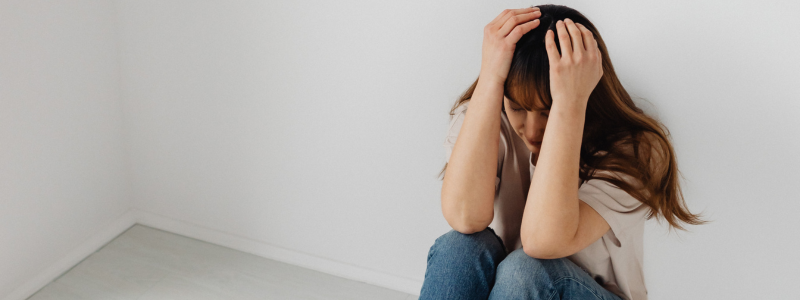
Head of Online Medical Content

Audiology Expert

5 Signs You Might Need a Hearing Test
Spotting hearing loss before it becomes a problem
Overview | The 5 signs to look out for | What to do next | Conclusion
Last Hearing Aid UK Update:
Hearing loss is usually gradual
Hearing loss is one of those things that tends to creep up gradually - so gradually, in fact, that many people don't realise they're experiencing it until it's become quite significant.
Unlike waking up one morning unable to hear properly, hearing loss typically develops over the years, which makes it remarkably easy to dismiss or adapt to without really noticing.
Here are five signs that it might be time to book a hearing test, even if you think your hearing is perfectly fine.
1. You're constantly asking people to repeat themselves
If "sorry, what was that?" or "could you say that again?" have become your most frequently used phrases, that's a fairly strong indicator that something might be up.
We all mishear things occasionally - someone mumbles, there's background noise, or we're simply not paying attention.
But if you're finding yourself asking for repetition multiple times in most conversations, particularly in relatively quiet environments, it's worth investigating further.
What often happens is that you can hear that someone's speaking, but the words themselves sound muffled or unclear. This is because hearing loss frequently affects higher-frequency sounds first.
These are the very sounds that give speech its clarity and help us distinguish between similar words. You might hear the vowels just fine but miss the consonants that make words intelligible.
2. Television volume has become a point of contention
Here's a classic scenario: you're watching television at what seems like a perfectly reasonable volume, but everyone else in the household is complaining it's far too loud. Or perhaps you've noticed you need the subtitles on these days, even for programmes in your own language.
This is particularly telling if you used to watch comfortably at lower volumes but have gradually been turning it up over time.
The tricky thing is that this increase usually happens so slowly that you don't notice you're doing it. It's only when someone else comments on it - or when you visit someone else's home and realise their television volume seems impossibly quiet.
You might then start to wonder if something's changed. By the time the volume becomes a household issue, there's often already a noticeable degree of hearing loss present.
3. Following conversations in noisy environments has become exhausting
We've all been in that restaurant or pub where you simply can't hear yourself think. But there's a difference between genuinely excessive noise that bothers everyone and finding that you're the only one at the table struggling to follow the conversation.
If you're constantly leaning in, watching people's lips to help you understand, or nodding along whilst having no idea what's actually being said, that's significant.
A lot of people who lose their hearing early on start to avoid social situations more and more because it becomes mentally tiring instead of fun to follow group conversations.
It's not just about missing words; it's also about how hard it is for your brain to fill in the blanks and figure out what is being said. After spending a few hours in a busy place, you might feel completely drained in a way that other people don't seem to.
4. Certain sounds have simply disappeared
Have you stopped hearing the birds singing outside? Do you no longer notice the indicator ticking in your car? What about the beep of the microwave or the sound of water running from a tap?
These everyday sounds often disappear so gradually that you don't realise they're missing until someone points them out or until you really stop to think about it.
Higher-frequency sounds tend to go first, which includes things like birdsong, doorbells, phone notifications, and various household appliances. You might not miss these sounds consciously - in fact, you might have assumed that your doorbell had broken.
But their absence is often one of the clearest indicators of developing hearing loss, even if it hasn't yet significantly affected your ability to understand speech.
5. People complain you're speaking too loudly
This one catches many people by surprise because it seems counterintuitive - surely if you can't hear well, you'd speak more quietly? Actually, the opposite tends to happen. When you're not hearing your own voice properly, you naturally speak louder to compensate.
You might also find yourself speaking more loudly because you've unconsciously adjusted to everyone else needing to speak up for you to hear them, and you've matched their volume.
Family members and colleagues might mention that you don't need to shout, or you might notice people physically stepping back from you during conversations.
It's quite an awkward thing for someone to point out, which means by the time someone actually mentions it, it's likely been noticeable for a while.
What to do next
If any of these signs sound familiar - particularly if you've recognised yourself in more than one - it's genuinely worth booking a hearing test. The good news is that modern hearing tests are quick, painless, and far more sophisticated than you might expect.
They're not just about whether you can hear beeps at different volumes; they assess how well you understand speech, how you process sound in different situations, and exactly which frequencies are affected.
Better still, early intervention makes a real difference. The longer you wait to address hearing loss, the more your brain adapts to receiving unclear sound signals, and the harder it can be to adjust to amplification later on.
Modern hearing aids are also remarkably different from what you might remember - they're discreet, intelligent, and designed to work with your brain's natural hearing processes rather than simply making everything louder.
A hearing test doesn't commit you to anything - it simply gives you information about your hearing health and options if there are any issues. And if your hearing turns out to be fine? Well, at least you'll have peace of mind and a baseline for future comparison.
Hearing is too important to your quality of life, your relationships, and your safety to ignore. If you've noticed any of these signs, don't put off getting it checked. You might be surprised by the difference it makes.
Conclusion
Hearing loss is very common, but people often put off dealing with it.
Maybe it's because the changes happen so slowly, or maybe it's just easier to tell yourself that everyone else is mumbling than to admit that something might have changed.
But here's the thing: your hearing connects you to the people you love, the world around you, and the things that make life fun.
Not being able to hear well enough to join in on conversations or always feeling tired from trying to hear well is more than just annoying; it really does affect your quality of life.
The good news is that today's hearing aids are advanced pieces of technology that can adjust to your way of life and help you hear normally instead of just making everything too loud. And it all begins with a simple test of your hearing.
If you see yourself in any of these five signs, don't wait until the problem is too big to ignore. Make an appointment for a hearing test with one of our qualified hearing care professionals.
You have nothing to lose but maybe the annoyance of always asking "what?" and a lot to gain.
Why Choose Us?
- FREE Hearing Tests
- Best Hearing Aids and Prices
- FREE Aftercare for Life
- FREE Home Visits
- 200+ Local Audiologists
- 60 Day Money Back Guarantee
Do you think you could be losing your hearing?
If you've seen any of these signs in yourself, it's time to get your hearing checked. Make an appointment for a full hearing test with one of our trained hearing care experts.
They will look at your hearing health and talk to you about the best options for your needs and way of life.
Don't wait until hearing loss makes it hard to live your life and get along with others; early intervention is the key.
Other hearing loss awareness articles you might like...
 Hearing aid stigma
Hearing aid stigma  The impact of diet on your hearing
The impact of diet on your hearing  How to tell if hearing loss is permanent or temporary
How to tell if hearing loss is permanent or temporary Our specialist service includes:
Do not spend hundreds of pounds without getting a second opinion from us.
Please call us on 0800 567 7621
 Not only are the prices great, but the service is fantastic! Many thanks to your team.
Not only are the prices great, but the service is fantastic! Many thanks to your team.Watch RNID video about hearing loss below
What's included in our hearing aid prices?
FAQs
In general, any audiologist will always recommend to you the hearing aid model that best suits your needs. Here is a useful checklist to make sure that is the case.
- Audiologist's level of knowledge: The audiologist you have seen will hopefully have a wide knowledge of all available hearing aids; however, some will only be familiar with a small number of brands and, therefore, may not really be in a position to know which model is the best for you. It is OK to challenge their recommendation and ask them to justify why this particular brand is the one for you.
- Do research: Read about the hearing aid that was recommended. Does it seem like it will suit your lifestyle? Does it have more or fewer features than you need?
- Be aware of sales targets: Many high street retailers have specific tie-ins to a particular manufacturer/brand. The hearing aid they have suggested may still be the correct one for you, but do your research so that you know why they might have recommended it.
If you have significant hearing loss in both ears, you should be wearing two hearing aids. Here are the audiological reasons why:
Localisation: The brain decodes information from both ears and compares and contrasts them. By analysing the minuscule time delays as well as the difference in the loudness of each sound reaching the ears, the person is able to accurately locate a sound source.
Simply put, if you have better hearing on one side than the other, you can't accurately tell what direction sounds are coming from.
Less amplification is required: A phenomenon known as “binaural summation” means that the hearing aids can be set at a lower and more natural volume setting than if you wore only one hearing aid.
Head shadow effect: High frequencies, the part of your hearing that gives clarity and meaning to speech sounds, cannot bend around your head. Only low frequencies can. Therefore, if someone is talking on your unaided side, you are likely to hear that they are speaking, but be unable to tell what they have said.
Noise reduction: The brain has its own built-in noise reduction, which is only really effective when it is receiving information from both ears. If only one ear is aided, even with the best hearing aid in the world, it will be difficult for you to hear in background noise as your brain is trying to retain all of the sounds (including background noise) rather than filtering them out.
Sound quality: We are designed to hear in stereo. Only hearing from one side sounds a lot less natural to us.
Fancy some further reading on this topic? You can read about why two hearing aids are better than one in our article, hearing aids for Both Ears, here
For most people, the main benefit of a rechargeable hearing aid is simple convenience. We are used to plugging in our phones and other devices overnight for them to charge up. Here are some other pros and cons:
For anybody with poor dexterity or issues with their fingers, having a rechargeable aid makes a huge difference, as normal hearing aid batteries are quite small and some people find them fiddly to change.
One downside is that if you forget to charge your hearing aid, then it is a problem that can't be instantly fixed. For most, a 30-minute charge will get you at least two or three hours of hearing, but if you are the type of person who is likely to forget to plug them in regularly, then you're probably better off with standard batteries.
Rechargeable aids are also a little bit bigger and are only available in Behind-the-Ear models.
Finally, just like with a mobile phone, the amount of charge you get on day one is not going to be the same as you get a few years down the line. Be sure to ask what the policy is with the manufacturer's warranty when it comes to replacing the battery.
For most people, the answer is yes. But it's never that simple.
The majority of hearing problems affect the high frequencies a lot more than the low ones. Therefore, open fitting hearing aids sound a lot more natural and ones that block your ears up can make your own voice sound like you are talking with your head in a bucket. Therefore, in-ear aids tend to be less natural.
However, the true answer is we can't tell until we have had a look in your ears to assess the size of your ear canal, and until we have tested your hearing to see which frequencies are being affected.
People with wider ear canals tend to have more flexibility, also there are open fitting modular CIC hearing aids now that do not block your ears.
There is also the age-old rule to consider, that a hearing aid will not help you if it's sat in the drawer gathering dust. If the only hearing aid you would be happy wearing is one that people can't see, then that's what you should get.
Most people can adapt to any type of hearing aid, as long as they know what to expect. Have an honest conversation with your audiologist as to what your needs are.
Generally speaking, six or more. Unless it's none at all. The number of channels a hearing aid has is often a simplistic way an audiologist will use to explain why one hearing aid is better than another, but channels are complex, and it is really not that straightforward. Here are some reasons why:
Hearing aids amplify sounds of different frequencies by different amounts. Most people have lost more high frequencies than low, and therefore need more amplification in the high frequencies. The range of sounds you hear is split into frequency bands or channels, and the hearing aids are set to provide the right amount of hearing at each frequency level.
Less than six channels, and this cannot be done with much accuracy, so six is the magic number. However, a six-channel aid is typically very basic with few other features and is suitable only for hearing a single speaker in a quiet room. The number of channels is not what you should be looking at; it's more the rest of the technology that comes with them.
As a final note, different manufacturers have different approaches. One method is not necessarily better than any other. For example, some manufacturers have as many as 64 channels in their top aids. Most tend to have between 17 and 20. One manufacturer has no channels at all.
Manufacturer's warranties typically last between 2-5 years, depending on the brand and model, and cover defects in materials and workmanship. This includes repairs for component failures, electronic malfunctions, and manufacturing defects, but excludes damage from misuse, accidents, or normal wear. Most manufacturers also include loss and damage insurance for the first year.
We handle all warranty claims on your behalf, liaising with manufacturers and ensuring you get replacement devices quickly when needed. This comprehensive warranty coverage, combined with our lifetime aftercare, gives you complete peace of mind.
Our hearing tests are completely free, whether at our clinics or in your home. Unlike other providers who charge £30-£100 for home visits, we believe hearing healthcare should be accessible without financial barriers. Our comprehensive assessments include examination by a registered audiologist, audiogram results, and personalised recommendations.
All testing, future adjustments, and ongoing support are included at no extra cost. While NHS tests are also free, typical 6-week waiting periods often lead people to seek immediate private testing. We provide prompt, professional assessments that fit your schedule and budget.
Yes, we offer completely free home visits throughout the UK, and this service is included in our prices with no additional charges. Home visits are particularly valuable for people with mobility issues, busy schedules, or those who simply prefer the comfort and convenience of their own environment.
Our audiologists can conduct full hearing tests, fit hearing aids, and provide ongoing support in your home. This service sets us apart from many providers who either don't offer home visits or charge extra for them.
We can offer prices up to 40% lower than high street retailers because of our business model. As a network of 200+ independent audiologists, we don't have the massive overheads of large retail chains - no expensive high street premises, no sales targets pushing audiologists to sell the most expensive options, and no costly marketing campaigns.
However, we maintain the same buying power as the big chains because we purchase on behalf of our entire nationwide network. This means you get access to the same premium hearing aids with professional service, but at genuinely competitive prices.
We offer a comprehensive 60-day money-back guarantee, which gives you twice the industry standard time to properly assess whether your hearing aids are right for you. This extended period recognises that adjusting to hearing aids takes time, and your brain needs several weeks to adapt to the amplified sounds.
Unlike many providers who offer just 30 days, we believe 60 days gives you the confidence to test your hearing aids in all the situations that matter to you - from quiet conversations at home to busy restaurants and outdoor activities.
Other pages you might find useful
Ask the Experts
6 Morton Lane
Walkwood
Redditch
Worcestershire
B97 5QA
Latest Launch
When we refer to a product as 'Latest Launch', we mean it is the latest to be released on the market.
New
When we refer to a product as 'New', we mean that the product is the newest hearing aid model on the market.
When we refer to a product as 'Superseded', we mean that there is a newer range available which replaces and improves on this product.
Older Model
When we refer to a product as an 'Older Model', we mean that it is has been superseded by at least two more recent hearing aid ranges.
